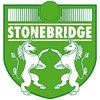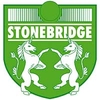-
Home
-
Contributors
-
International
-
Account
-
Information
More From Contributor
Specification for hardware, software & peripherals Compose a business case for the use of IT in business Understand the importance of data security Draw up a housekeeping schedule for managing data & files Evaluate the benefits of using spreadsheets & accounting packages Determine a reporting structure for computerised accounts ...

Technology And Flexibility (Byte Size Skills Course)
implications for workforce and management. We look at the technological developments which may supersede mass production and the controversies concerning these developments. We start with the problem of definition and then move on to a consideration of Fordism. We look at the concept of alienation in relation to technology and the important contribution of the American researcher, Blauner. We then go on to deal with post-Fordism and flexible specialisation. Finally, we examine new technology and its impact upon manufacturing and the office. After participating in this course, you should be able to: define technology and identify different types of mechanisation. identify some of reasons for technological change. describe what Durkheim identified as the fundamental
differences in technological and social organisation between a pre-industrial and an industrial society. describe the impact of division of labour upon an industrial society. define Fordism and outline its production system. identify the advantages, drawbacks and limitations of Fordism. relate Marx's concept of alienation to work in modern technological settings. describe the work and conclusions of Blauner on alienation, along with some assumptions and limitations of technological determinism. explain the relationship between control, de-skilling and technological change in labour process theory, and identify some of the theory's limitations. identify in a contemporary industrial example the characteristics of post- Fordism. describe how work and technology are
developing in the view of flexibility theorists, the reasons they see for this, and the likely effects for employees and organisational management. describe some criticisms of flexibility theory and outline some of the drawbacks and limits to flexibility. describe the characteristic features of new technology. explain how new technology can increase skill requirements and improve the quality of working life. describe convergence theory and its implications in basic terms.
This page now acts as a permanent archive for this product. Add more information using the comments box below to ensure it can still be found by future generations.
Use our search facility to see if it is available from an alternative contributor.
- Availability: Out Of Stock
- Supplier: Stonebridge
- SKU: 532
Product Description
Technology & Flexibility Course Technology as a means to facilitate the production of goods & services has always been with us. Technology describes systems of production on which all human beings depend, to a greater or lesser extent. These systems range on a continuum from the very primitive basic tools to the very sophisticated micro-electronics. Our focus in this course is on technology & technological change during the twentieth century within industrialised societies. We look at the dominant production systems & their effects upon people who work with them. In particular, we examine some of the debates concerning the major twentieth century technological development within the workplace. This is the system of mass production, or extreme specialisation, & its implications for workforce & management. We look at the technological developments which may supersede mass production & the controversies concerning these developments. We start with the problem of definition & then move on to a consideration of Fordism. We look at the concept of alienation in relation to technology & the important contribution of the American researcher, Blauner. We then go on to deal with post-Fordism & flexible specialisation. Finally, we examine new technology & its impact upon manufacturing & the office. After participating in this course, you should be able to: define technology & identify different types of mechanisation. identify some of reasons for technological change. describe what Durkheim identified as the fundamental differences in technological & social organisation between a pre-industrial & an industrial society. describe the impact of division of labour upon an industrial society. define Fordism & outline its production system. identify the advantages, drawbacks & limitations of Fordism. relate Marx's concept of alienation to work in modern technological settings. describe the work & conclusions of Blauner on alienation, along with some assumptions & limitations of technological determinism. explain the relationship between control, de-skilling & technological change in labour process theory, & identify some of the theory's limitations. identify in a contemporary industrial example the characteristics of post- Fordism. describe how work & technology are developing in the view of flexibility theorists, the reasons they see for this, & the likely effects for employees & organisational management. describe some criticisms of flexibility theory & outline some of the drawbacks & limits to flexibility. describe the characteristic features of new technology. explain how new technology can increase skill requirements & improve the quality of working life. describe convergence theory & its implications in basic terms.
Reviews/Comments
Add New
Intelligent Comparison
We couldn't find anything!
Perhaps this product's unique.... Or perhaps we are still looking for comparisons!
Click to bump this page and we'll hurry up.
Price History
We couldn't find any historical pricing!
Vouchers
Do you know a voucher code for this product or supplier? Add it to Insights for others to use.


 United Kingdom
United Kingdom
 France
France
 Germany
Germany
 Netherlands
Netherlands
 Sweden
Sweden
 USA
USA
 Italy
Italy
 Spain
Spain











 Denmark
Denmark